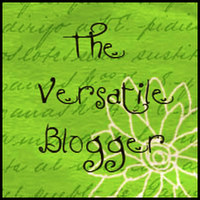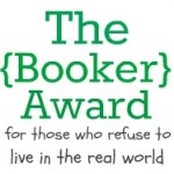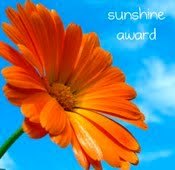|
The Uruguayan Writer Horacio Quiroga (1878-1937) has been called the Edgar Allan Poe of Latin America, but he is virtually unknown in The United States. This video is a dramatization with clay animation (narrated in Spanish with English subtitles) of one of his most famous and macabre stories: The Feather Pillow.
4 Comments
I want to share my experience and some thoughts about soliciting reviews for my book The Sun Zebra. As of today (04-26-12), my book has 37 reviews. I will divide the reviews into first, second, and third tier.
First Tier In this tier I include 40 people I contacted for review whom I met via Scribd.com, Twitter, or Goodreads. In this tier I also include reviews I requested from 3 people who downloaded my book during a free promotion and wrote to say they loved it. Of the 43 people I contacted in the fashion described above, 30 (69.8 %) have written a review. Second Tier The second set of people I contacted are “dedicated reviewers” and also are people I haven’t had previous contact with. I have sent out 212 individual review requests to these reviewers. This is the response I‘ve had. 27 (12.7 %) agreed to review my book. 34 (16.0 %) declined with the most common reason being that they were too busy. 11 (5.2 %) either said they were too busy but I could try again later or offered another option such as a book feature or an interview. 12 (5.7 %) said they were not reviewing my genre. 128 (60.4 %) have not replied yet to my request. Of the 27 people who agreed to review my book, as of today only 5 (18.5 %) have written one. Third Tier These are reviews I did not solicit directly. So far I have had 2 unsolicited reviews from people who downloaded a free copy during my promotion. To sum it up, of my 37 reviews 30 (81.1 %) are first tier, 5 (13.5 %) are second tier, and 2 (5.4 %) are third tier I did my free promotion about 2 weeks ago. I gave away 19,000 plus copies of my book. If you lump the 3 people who wrote to me from whom I solicited a review with the 2 unsolicited reviews, you can see that all those copies I gave away have so far only gotten me 5 reviews. Maybe with more time I will get more reviews, but I am beginning to think that the vast majority of the people who downloaded the book have not read it or don’t care about writing reviews (positive or negative). For me the take home lesson is that beginning authors like me cannot rely on unsolicited reviews. But books need reviews to compete effectively not only for readers but for promotional slots (books with high rankings and many reviews are given preference over those with lower rankings and fewer reviews). So how do you get them? My experience with tier 2 doesn’t look very good either. Contacting these reviewers was a lot of work. The majority did not bother to respond, and many of the 27 reviewers that committed to a review informed me that they have long lists of books to review and it would be months before they got to mine. So that leaves the beginning author only with tier one as the most important source of good reviews that can be obtained in a reasonable amount of time. It is important for a beginning author to have a sizable number of tier one contacts before publishing. To obtain them you have to be sociable. Read what people write, comment on it, tweet or like their posts, write reviews for their books, get involved, become friends, but be sincere. People familiar with your work who are willing to read it, give you feedback, and write reviews are one of the most important assets for a beginning author. *** If you like this blog you can have links to each week's posts delivered to your e-mail address. Please click here. If you are a beginning or intermediate writer, Ray Bradbury has some great advice for you in this video. It is almost an hour long, but it is worth watching. I want to direct you to an excellent post on Kim Strickland’s (@acitymom) website. In a nutshell Kim examines the review practices of Publishers Weekly. They have a service where self-published authors can submit their books to them for $149 to get them “listed” in a supplement to its regular magazine. Then they pick those few self-published books that have “merits” to review, but needless to say that very few of these books survive this review process.
I only have two things to add to Kim’s great post. The first is that for $149 you can buy promotion time in some of the major book blogs and/or coordinate this with a KDP Select free giveaway of your book. This seems to me more cost-effective and more sensible than risking that your book be torn to shreds by people who have a very strict idea of what constitutes a worthwhile story. The second is that if an author is publishing by the traditional route, that if fine with me. But once an author has self-published, it perplexes me why said author would pay good money to have a chance, no matter how improbable, to obtain the approval of one of the bastions of the traditional publishing establishment. The whole point of self-publishing is to circumvent the old order. You have stepped over the line, you are in the new frontier, and you are taking your book directly to the readers! Why go back groveling for the approval of the old establishment? 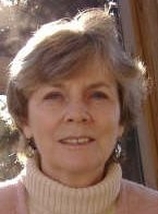 This is a guest post by Barbara Alfaro. She is the author of "Mirror Talk," "Singing Magic," "The Sirius Interview and Other Short Plays," and her most recent book of poems "First Kiss." I first met Barbara on the document sharing site Scribd.com where her documents have by now accumulated more than 100,000 reads. Her work is always a delight to read, and she is a great friend. So with no further ado here she is, our poet! *** “What do you write?” someone asked recently. “Poetry,” I answered. “And I suspect only professors and other poets read poetry, but it’s what I love – so there!” I had just met this man and I was already so-there-ing him. Poetry is what I love. When I’m not reading or writing poetry, I’m thinking about poets. Would Emily Dickinson self-publish if she were alive today? I need to read “the love poet,” e.e. cummings, again. Where did I put my copy of The Complete Poems of Randall Jarrell? These thoughts are interrupted by mundane concerns – should I vacuum the whole house or cheat, and just the living room? Did that woman in the designer suit notice my ensemble is a careful blending of L.L. Bean and Walmart? Many people feel toward poetry the way I do when I see all the hoopla about various shaped balls. Years ago, Tom Wolfe suggested everyone in the country who loved sports should move to Arizona. I don’t think everyone who loves poetry ought to move to Arizona; there would be too many desert poems. Poetry makes me feel glad. Whether I’m reading something as exquisite as Mary Karr’s “For a Dying Tomcat Who’s Relinquished His Former Hissing and Predatory Nature” or as pure fun as Hans Ostrom’s “Emily Dickinson and Elvis Presley in Heaven,” there is that gladness, ineffable and exact, poetry brings. Pulitzer Prize recipient Mark Strand suggests readers can experience a poem without understanding it. Poet Kathleen Norris says often poets themselves do not know the meaning of a poem they have written until years after it is written. How do I go about writing this thing that neither I nor my readers may fully understand but will hopefully enjoy? The creative impulse can surprise me anywhere. On a commuter bus in Maryland, I look out the window and notice the trees. Writers always sound a bit daffy when they say things like this but the first two lines of a poem are given to me, they simply appear in my mind, already written: Trees amaze me most in winter when stark against slate skies. I know it’s my part to complete the rest of the poem. Other vivid images – a black cat beside a rosebush, three finches rollercoastering by, a funny but wonderful hat – spark other poems. Anger at social injustice is a strong source for poetry but something as simple as a charming memory can cause a poem. When she was a child, my mother-in-law thought she could stand on a hill and touch the stars. LA BELLA for Isolina Alfaro This is the time, during the war, la bella started wearing rainbow dresses. To some they looked like ordinary clothing but to those who loved, the dresses contained all the colors of the rainbow. When the beautiful one was a child she thought she could touch stars from a hilltop and they would feel sharp and warm. The first stanza of “First Kiss,” the title poem of my poetry book, came from a dream: Teddy O’Connor, I dreamed of you last night You were the age you would be now and still handsome in your quiet way.” The poem suggests its form. A very structured form might be used for a poem about a strict Catholic childhood and free verse for one about wild mustangs. Once I begin a poem, it will not leave me alone – that’s me scribbling stanzas at three a.m. Creativity is like a snoring husband, it won’t let you sleep. Again, my poetry and that of other poets, makes me feel glad in a way no other genre of writing does. And when I feel that quiet gladness about a poem I have been writing, I know it is complete. Would Emily Dickinson have self-published? I think so. She would have been mystified by marketing and promotion but delighted that her poems were being read, as am I. *** To learn more about Barbara visit her website, follow her on Twitter @BarbaraAlfaro, or like her on Facebook. You can also read my review of Barbara's poetry book "First Kiss" here. 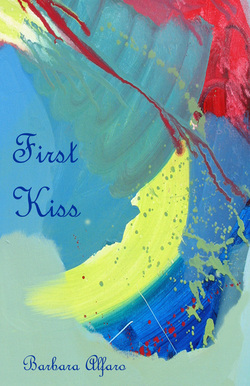 This book of poems might have never made it. It could have been thwarted by a disbelieving second grade teacher who accused the author, then a little girl, of plagiarizing a poem she wrote for an assignment. Or it could have been stifled by an education that strongly discouraged any desire for recognition. But thankfully for us, Barbara found her way. “First Kiss” is her first e-book of poems some of which were available previously in her print book “Singing Magic.” This e-book is a collection of 24 poems that cover a diverse number of topics, and the author weaves them all dexterously into a pleasing multicolored tapestry. There are poems about family and friends, and about the hardships and rewards of love and growing up (including that “First Kiss”). There are poems inspired by photographs, and beds, and sculptures, and others that just celebrate everyday life in all its glory. Many of the poems are surprisingly simple but yet very effective in delivering their meaning such as “Carnival Music” and “Spinning.” Other poems including “K-Street,” “Castle Cats,” or “Jewels on Her Hat” resemble snapshots of frozen time. But the ones I enjoyed the most were poems like “Oddly American”, “Afterlife” or “Before Dark”. They have layers within layers, and as you peel the layers metaphors spin out and soar in every direction. My personal favorite is “A Child’s Poem,” which is in part about that incident with the second grade teacher, but it goes much deeper. You finish reading this poem and the last words resonate like an echo inside your head. The book is well written and formatted. The cover art by Michele Bulatovic is superb. The table of contents allows for easy navigation among the poems, and the links all work. Barbara in the introduction quotes President John Adams telling his son that he will never be alone with a poet (book of poems) in his pocket. If that is so, make sure you include Barbara’s “First Kiss” in yours! *** You can also read Barbara's guest post on my blog here. The adult world is in many ways a betrayal of all the magic and wonder we experienced as a child. When we grow up we discover that most of the time grinches do not return the stolen toys, wolves devour little pigs, Bambi gets shot or eaten, tornados will kill you rather than take you to Oz, and wishing upon balls of burning gas hurtling thought the cold void of space millions of light years away doesn’t achieve much. More often than not, when we become adults, all the stories that wowed us as children are shelved under “fantasy.”
And this is understandable. Growing up facing the endless stream of challenges and frustrations that the average person faces has a way of dulling our senses. Sure we survive, and we have our victories. But the scars of our battles, the accumulation of unrealized dreams, and stifled hopes tends to make many people cynical. Some look back upon childhood as a cruel hoax. Others do view it as a precious experience that they long for and cherish, but still an experience with little practical application for grownups. And finally others forget it or don’t think about it that much. After all, they may reason, to survive in the adult world we cannot be like children. And what can the world of a child possibly teach us about dealing with the complexities and brutal realities of the real world? My opinion of childhood used to be a mix of the above: until I began to write. Then one day I saw a picture of an animal in a particular situation and a little girl came out of nowhere in my mind. The girl took a look at the animal and excitedly went over to tell her dad she had found a “zebra.” This dad was skeptical of the discovery made by this girl whose name is Nell. Nevertheless he and his wife Rhonda chose to take Nell to look for the zebra and, to quote Robert Frost’s immortal poem, “that…made all the difference.” I won’t tell you the ending of this short story but suffice it to say that the animal Nell saw turned out to be part flesh and part metaphor. To my surprise, four other stories involving Nell and her family followed. A brave insect set forth on an unusual trek, Poe’s poem “The Raven” came to life in a very peculiar way, a Christmas tree revealed its secrets, and a long forgotten superhero made a spectacular return. In these five stories the skeptical world of adults collided with the magical world of childhood and sparks of wisdom flew everywhere. I had rediscovered the ability to see the world through the eyes of a child. I say “rediscovered” because it was always there, only I didn’t use it. So I gathered these tales together in a book of “children’s stories for grownups,” and I published them on Amazon as an e-book to share my epiphany with others. The stated aim of the book is to help us discover or rediscover some of the amazing things that children can teach us adults about life. I want to end this post by admitting that seeing the world through the eyes of a child is hard even after you have rediscovered this ability. The adult world has a way of bogging you down. There are just too many responsibilities and uncertainties. I try to ask myself: what would Nell have to say about this or that? The answers don’t always come right away, but as I discover more of them I will write more stories! My e-book The Sun Zebra will be free on the Amazon store from November 17 to 18. Please download it (it's a quick read), and let me know what you think. You don’t have a Kindle? No problem, you can download the following safe and free application from Amazon that will allow you to read Kindle books with your PC or Mac. Rolando |
I am a tinker, tailor, BlogrollLaura Novak
Barbara Alfaro Suzanne Rosenwasser Sunny Lockwood Christine Macdonald Jennie Rosenbaum Kristen Lamb Joe Konrath Sweepy Jean Ingrid Ricks The Jotter Robert David MacNeil Molly Greene The Passive Voice Third Sunday Blog Carnival Marilou George Laura Zera Jeri Walker-Bickett Lia London Categories
All
Archives
April 2020
|
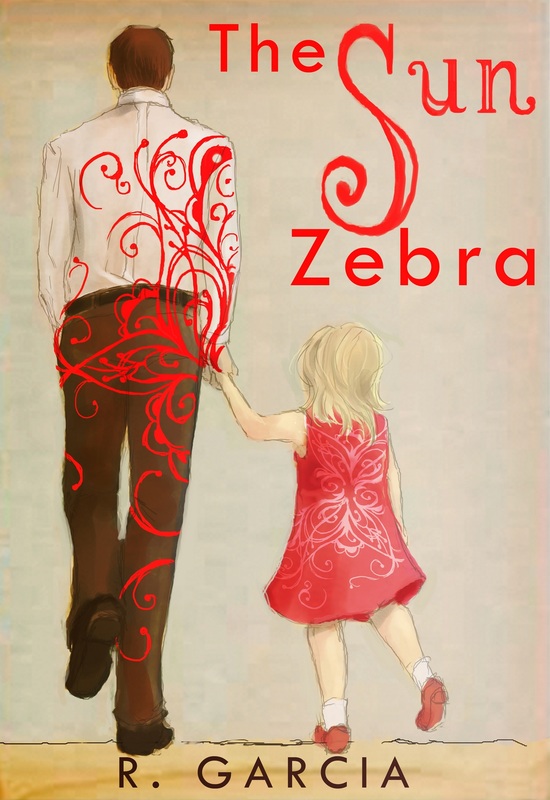

 RSS Feed
RSS Feed
